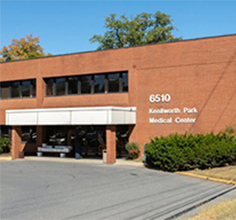
Bringing a child into the world is an awe-inspiring journey, filled with excitement and anticipation. As expectant parents, it's natural to have concerns about your baby's health. Prenatal genetic screening is a powerful tool that provides insights into potential chromosomal disorders, such as Down syndrome. In this article, we will explore Down syndrome, the process of prenatal genetic screening, and who is recommended for such a test. If you are looking for a primary care physician that offer screening for down syndrome, you can call Southern Maryland Medical Group to schedule a consultation or appointment.
Down syndrome is a genetic condition caused by the presence of an extra copy of chromosome 21. It affects individuals from all walks of life, regardless of race or socioeconomic background. People with Down syndrome may experience developmental delays, intellectual disabilities, and distinctive physical features, such as almond-shaped eyes and a flattened facial profile. However, it's important to remember that each person with Down syndrome is unique, possessing their own talents, abilities, and potential.
Prenatal genetic screening involves assessing the likelihood of a baby having certain genetic conditions, including Down syndrome. It provides parents with valuable information that can help guide their decisions regarding their pregnancy, allowing them to prepare for any potential challenges and access appropriate support.
There are two primary types of prenatal genetic screening tests: non-invasive screening tests and diagnostic tests. Non-invasive screening tests are generally the first step, as they pose minimal risk to both the mother and the developing baby. These tests evaluate the probability of a chromosomal disorder based on factors like the mother's age, hormone levels, and ultrasound measurements.
One widely used non-invasive screening test is the combined test, which combines an ultrasound examination with a blood test. The ultrasound measures the thickness at the back of the baby's neck (nuchal translucency), while the blood test analyzes specific proteins and hormones in the mother's blood. The results are then combined with the mother's age to estimate the risk of Down syndrome.
For those seeking a more definitive diagnosis, tests like chorionic villus sampling (CVS) or amniocentesis can be performed. These tests involve obtaining a sample of the placenta or amniotic fluid and analyzing the baby's chromosomes directly. While diagnostic tests provide a more accurate diagnosis, they carry a slightly higher risk of complications, including miscarriage, compared to non-invasive screening tests.
Prenatal genetic screening is often recommended for women over 35 years old as the chance of having a baby with Down syndrome increases with maternal age. However, it is important to remember that most babies with Down syndrome are born to younger mothers, simply because younger women have a higher birth rate overall. This is why screening is recommended for all expectant mothers, regardless of age.
In addition to maternal age, other risk factors include a previous child with Down syndrome, a family history of genetic conditions, or certain abnormalities detected during an ultrasound examination. If any of these risk factors apply to you, it is advisable to discuss prenatal genetic screening with your healthcare provider to make an informed decision about the next steps.
If you are looking for primary care doctors in southern Maryland, then call Southern Maryland Medical Group to schedule a convenient appointment. We are also happy to arrange a walk-in consultation for as soon as possible.
Southern Maryland Medical Group has 3 convenient locations to provide professional medical care services in the Southern Maryland area. Call or schedule an appointment with one of our locations to get medical care help.

5801 Allentown Road, Suite 400 Camp Spring, MD 20746
Phone: 301-868- 0150
Billing Inquiries: 301-552-1270
Fax: 301-868-0243

7500 Greenway Center, Dr #1200 Greenbelt, MD 20770
Phone: 301-486-7580
Billing Inquiries: 301-552-1270
Fax: 301-486-7581

6510 Kenilworth Ave, Ste 1400, Riverdale MD 20737
Phone: 301-618-0771
Billing Inquiries: 301-552-1270
Fax: 301-618-0772